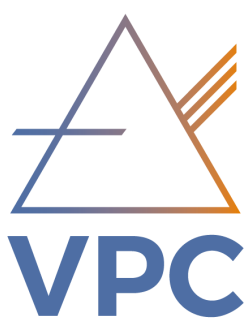VPC Newsletter | AUGUST – 2017
The Month That Was…….
COUNTRY, FINANCE, MACROECONOMY, POLICY AND POLITICS
- At its meeting which transpired on August 2 nd , The Monetary Policy Committee lowered the REPO rate by 25 basis points. The rate is now set at 6%, the lowest since November 2010.
- On August 24 th , the government provided details of its approval of nine FDI proposals, including that of Amazon Retail India, foreseeing foreign investments to the tune of ~ US$ 780 Million. FDI into the country grew 9 per cent to USD 43.47 billion in 2016-17.
- More than 500 fresh foreign portfolio investors (FPIs) were registered in April-June quarter of this year, indicating that India remains an attractive destination, as per the latest data from the markets regulator SEBI.
- Goods and services tax (GST) collections have exceeded estimates in the first month of the landmark GST rollout despite a significant number of assesses not having filed returns yet. The total collection under GST for July is pegged at ~ US$ 14.4 Billion.
VPC SECTORS
- India overtook China to top the global Retail Development Index in 2017 with a market attractiveness of 63.4% and retail sales of ~ US$1 trillion.
- Confectionary maker Mars International has announced that it will be officially launching its world renowned M&M’s branded line of products in the Indian market. Albeit the brand is currently imported via parallel routes, this will be an official launch with full and direct commercial support of the Company. The Company currently produces its top selling product Snickers in India, and it has not ruled out the possibility of following suit with M&M’s as well.
- Norway’s Orkla ASA is entering the Indian confectionery market with its fruit-based jelly brand Laban in collaboration with MTR Foods Pvt Ltd. In preparation for the launch of Laban, MTR has invested in developing a production line at its Bengaluru manufacturing facility. The firm will spend significant resources on building the brand over the next three to five years.
- Fresh fruit juice maker RAW Pressery is planning to expand its footprint abroad and in India and is aiming at a turnover of over ~ US$ 15.6 Million in two years. Right now it is present in 12 cities in India as well as in the UAE and Qatar markets. Having consolidated its logistics, the Company is now keen to spread to smaller cities in India.
- Andhra Pradesh chief minister N. Chandrababu Naidu-founded dairy firm Heritage Foods on Thursday announced that it has tied with French dairy company Novandie to set up a 50:50 joint venture for manufacturing of flavoured yogurt and desserts. The joint venture will set up a Greenfield plant with a capacity of 20 tons per day.
- The processed foods firm Dr. Oetker is very bullish on India with its Managing Director announcing that India became its No. 1 market in the world in terms of growth. Albeit still with a comparatively small denominator of Euro 22 Million in turnover, it has high hopes for exponential growth on the back of expanded reach into smaller towns and lower price positioning thanks to its smaller packages of 100 grams. The Company expects mayonnaise sales to equal ketchup sales by the year 2022 due to the former’s versatility; albeit it is currently an ~ Euro 30 Million category as opposed to ketchup’s ~ Euro 165 Million in sales, which is the largest selling condiment in the country.
- Kraft Heinz Company is planning to double its annual earnings from India to US$ 550 Million in the next four years. The company also plans to introduce its global brand Planters, a nut-based snack, in the country.
- Yum! Brands Inc., the fast food company that owns KFC, Pizza Hut and Taco Bell, on Thursday said its system sales in India grew by 9% for KFC and 8% for Pizza Hut in quarter ended 30 June 2017. This is the fourth quarter in a row the company has reported growth.
- Tiger Global-backed tea cafe chain Chaayos is laying out plans to add 35 outlets this fiscal to expand footprint while it aims to change tea drinking habits in the country through its cafes, delivery channel and products.
- Italian fashion house Fendi, a part of luxury goods conglomerate Louis Vuitton Moet Hennessy, is seeking partners in India to restructure its business. Fendi currently operates in India through a joint venture arrangement with Beagle Fashions. The fashion major, known for its fur accessories and leather goods like the Baguette handbags, is present in India through a store at the Emporio mall in New Delhi.
- H&M is continuing its impressive run in India with its 6 months ending May top line sales toppling the previous years’ full year turnover. With sales of ~ Euro 62 Million, the Company’s price positioning strategy, which is slightly lower than rival Zara, is showing signs of success. The Company has been able to leverage its local supply chain and sourcing capabilities coupled with its minimalistic design, and world recognised brand power. The Company which currently has 16 mono-brand shops in the country, said it plans to have 50 stores by 2020 with an investment budget of ~ Euro 100 Million.
- Denim major Pepe Jeans has decided to foray into innerwear in India and formed an equal joint venture company with the hosiery player Dollar Industries. The JV will be responsible for manufacturing and marketing a premium range of innerwear, loungewear, gym-wear, sleepwear and track suits for adults and kids. In parallel, Pepe Jeans, which currently has four own stores in the country, has decided to open around 50 own stores to strengthen its retailing footprint in India, 20 of which would be opened this fiscal.
- Aditya Birla Fashion & Retail is in advanced talks with American apparel brand American Eagle Outfitters as it looks to garner the rights to sell its products in the Indian market, both online and offline.
- After foods, medicines and cosmetics, yoga guru-turned- tycoon Baba Ramdev, who discovered the business potential of everything homegrown, is ready to raid the next big consumer market branded apparel. Ramdev’s Patanjali Ayurved Ltd is preparing to launch its ‘swadeshi’ line of clothes for men, women and children.
- Foreign direct investment (FDI) in the textile sector more than doubled to ~ Euro 525 Million during FY 2016-17 from ~ Euro 195 Million in the previous fiscal.
- Amazon India has posted some very impressive numbers in the quarter ended June 2017. The Company has seen sales volumes grow by 88%, and value by 60% year on year. On the back of Softback’s commitment to Flipkart via an undisclosed investment amount that is rumoured to be in the range of US $ 2.5 Billion (making SoftBank one of the largest shareholders of India’s indigenous online giant), and the subsequently enhanced financial war chess of Amazon’s largest competitor in India, the heat between India’s two dominant online players is only going to get more intense.
- PayTM, probably the only other major online player that can withstand and fight for market share from India’s two dominant online forces, is focusing on online to offline business model. It believes that the model will enable smaller retailers to compete with online giants, as well as being well received by India’s retail ecosystem as it transfers the customer directly to the brand / store. The recent delisting of 85,000 sellers and six logistics providers, coupled with the renowned focus on the O2O business model is further evidence that the Company is not chasing GMV but rather it is focused on becoming a reliable, streamlined and profitable online platform.
- As a consequence of the failed merger between itself and Flipkart, Snapdeal has in turn decided to start its journey towards a toned down and slimmer e-commerce platform. Once defined as a direct competitor of India’s leading platform Flipkart, Snapdeal’s share started getting eroded with the entrance of Amazon and its infinite financial war chess. Snapdeal 2.0, as it is being branded, is expected to become more niche, targeting a few product categories and maybe even decreasing its geographical reach. Albeit more specific details are not yet known, it will be interesting to see how a once dominant e-commerce player will reposition itself. The success or lack thereof may also be an interesting gauge for the overall market and its capability to absorb profitable players that have a more targeted approach from a customer segment and product offering point of view.
- Heineken NV is looking to launch 5 new imported beer brands into India through its local asset United Breweries Ltd. The move is seen as a counter to Anheuser – Busch InBev’s leading market position in the imported beer segment with brands such as Corona, Stella Artois and Hoegaarden having found significant success in the Indian market with an aggregate market share of ~80% of the imported market value.
- Leading Chinese smartphone maker Huawei has announced plans to launch its offline presence in India. Competitors Lenovo and Xiaomi have already established their presence in Bangalore, Delhi and Mumbai. Huawei has said that its offline efforts will be focused on penetrating Tier II and III cities of India.
- Bajaj Auto, the country’s third largest motorcycle maker and the first exporter of two-wheelers form India, has partnered with iconic British motorcycle brand Triumph. The no-equity partnership will develop a range of 250-750 cc motorcycles, which will eventually be produced at Bajaj’s Chakan plant. From the partnership, Triumph will be able to have access to larger volume segments across the world, while Bajaj will be able to leverage the Triumph brand and in turn offer a wider range of motorcycles in the Indian market. The collaboration, when thinking about the Indian market, is a clear attempt at challenging Royal Enfield’s dominant share in the middleweight motorcycle market (250 cc to 600 cc).
Newsletters
-
VPC Newsletter | February 2020
March 5, 2020 -
VPC Newsletter | January 2020
January 31, 2020 -
VPC Newsletter | December 2019
January 6, 2020 -
VPC Newsletter | November 2019
December 2, 2019 -
VPC Newsletter | October 2019
November 4, 2019 -
VPC Newsletter | September 2019
October 1, 2019 -
VPC Newsletter | August 2019
September 4, 2019 -
VPC Newsletter | July 2019
August 5, 2019 -
VPC Newsletter | June 2019
July 1, 2019 -
VPC Newsletter | May 2019
June 6, 2019 -
VPC Newsletter | April 2019
May 1, 2019 -
VPC Newsletter | March 2019
April 3, 2019 -
VPC Newsletter | February 2019
March 6, 2019 -
VPC Newsletter | January 2019
February 6, 2019 -
VPC Newsletter | December 2018
January 4, 2019 -
VPC Newsletter | November 2018
December 6, 2018 -
VPC Newsletter | October 2018
November 2, 2018 -
VPC Newsletter | September 2018
October 3, 2018 -
VPC Newsletter | August 2018
September 1, 2018 -
VPC Newsletter | July 2018
August 3, 2018


